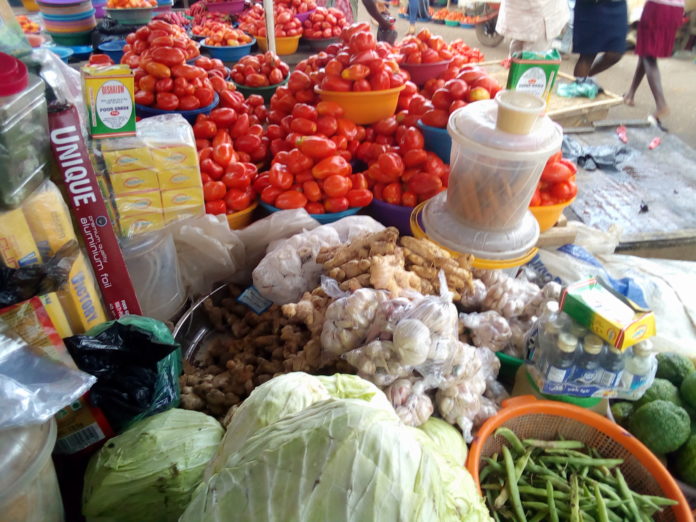
Yetunde Oluyide has run a gift shop in bustling Lagos for nearly a decade, but with coronavirus curtailing imports of Chinese goods, she is losing more than 2 million naira ($5,555) a month.
Oluyide’s reliance on China to fill the shelves of her Ventures reflects the close ties between the world’s second largest economy and Africa’s most populous country.
“For the past two months, we have not been able to ship in anything,” Oluyide said. “I’m anxious.”
China accounts for around a quarter of Nigerian imports, greasing much of the country’s supply chain, and is funding and building much-needed infrastructure.
China’s economic health is also crucial for oil prices, which make up more than half of government revenues for Africa’s top producer, and have tumbled more than 20% since January.
At close to $50 per barrel, oil prices are below the $57 per barrel budget benchmark. And on Thursday, OPEC backed the biggest cut to oil supplies since the 2008 crisis, meaning Nigeria could have to reduce output.
Combined with disrupted supply chains and the threat of coronavirus spreading within Nigeria, this threatens to torpedo growth in its economy and boost borrowing costs just as the country plans to return to the Eurobond market.
Nigeria’s Finance Minister Zainab Ahmed expressed concern this week at the drop, saying that if it is sustained, the record 10.59 trillion naira budget could become unsustainable.
“We will do the mid-term review and if the revenues are so significantly affected we will have to do some revisions by way of budget adjustment,” she said.
DOUBLE WHAMMY
READ ALSO: China To Offer $1,400 Reward For Coronavirus Patients Who Report To Authorities
Nigeria confirmed its first coronavirus case last week, wiping some 300 billion naira ($980 million) off the value of the local stock market. If the virus spreads, and workers and shoppers stay home, much-needed revenue from a higher VAT rate passed last year will evaporate.
Economies across Sub-Saharan Africa, with just a handful of cases, are all at risk. Angola exports the bulk of its oil to China, while Kenya relies on Beijing for billions in infrastructure funding.
Kevin Daly of asset manager Aberdeen Standard Investments, who holds Nigerian debt, said China’s broken supply chain, and the hit to oil, represent a double whammy.
“We have seen the IMF (International Monetary Fund) revise growth down from 2.5% to 2%, but I think it will be closer to 1%,” he said.
‘MORE VULNERABLE’
Nigeria’s depleted buffers and shaky exit from a 2016 recession, with growth around 2%, could make this setback harder for it to weather.
Moody’s, which downgraded Nigeria’s outlook in December, has warned that its debt, which has ballooned to 26 trillion naira ($85.5 billion), quadruple the 2008 level, made it particularly vulnerable to external shocks.
Last week, S&P also downgraded Nigeria, citing declining external reserves.
This could increase Nigeria’s borrowing costs as it plans $3 billion in new Eurobond offerings. Aberdeen’s Daly said he expected Nigeria would have to pay an extra 25 basis points over the current curve if it sold fresh debt now.
The yield of Nigeria’s 2049 dollar bond rose by one percentage point from mid-February to end-February.
“Nigeria is getting even more vulnerable – quite significantly so,” said Charles Robertson of Renaissance Capital.
For Oluyide, few vendors outside China can offer the products she wants at the right price. But she is committed to keeping her customers happy.
“We are hopeful that the virus will clear,” she said. “But if not, we are already looking at other alternatives.” (Reuters)















